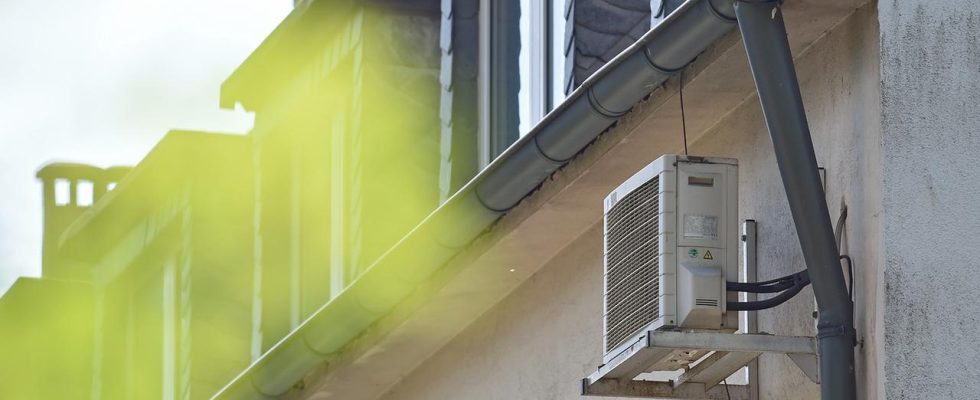Because the summers are getting hotter, air conditioning technicians have a lot to do: the demand for air conditioning systems for private households is growing rapidly. However, the devices themselves are harmful to the climate.
36 degrees, and even hotter when things went badly – Robin Müller-Bady has endured such summers in recent years. His office is under the roof of the family home. When it was built eight years ago, they insulated the walls against the cold. A disadvantage in summer, because the heat stays longer in the masonry. Then there is the flat roof.
“The air conditioning was the last resort for us,” says the family man. “Actually, we tried to reduce the temperature as naturally as possible for reasons of climate protection.” He lists the attempts: “Irrigating the roof, darkening during the day, wet towels in the room.” All attempts failed. The air conditioning was the “last resort”, as Müller-Bady describes it.
Full order books
With the hotter summers, air conditioning technicians are in demand. Patrick Wegner, who has an indoor climate company in Offenbach, is currently in a state of emergency. What he sells has long been “no longer a luxury good, but a common commercial item”. His order books are full. Now none of his fitters should get sick. He only accepts customers from the Rhine-Main area: “Why drive far when everyone here is vying for us,” he says.
Wegner drives to the next customer. He was lucky: he ordered in March, and the system will be installed in mid-June. “We thought that inflation might affect business a bit. But we’ve found that quite the opposite,” says Wegner.
Worldwide boom
The air conditioning industry records a Annual sales increase of 20 percent on average. This is how hot summers go after hot summers. And estimates are that demand will triple in the next ten years. Germany is still a long way from what is happening in many other countries. Only about three percent of private households in this country have air conditioning.
Air conditioning systems, on the other hand, are widespread in the USA, Japan and China, for example. According to forecasts by the International Energy Agency (IAE), global demand for the devices will increase by 40 percent by 2030. Brazil, Mexico and India in particular are catching up.
Plants from 3000 euros
The Müller-Bady family has opted for a so-called split system. It consists of an outdoor and an indoor unit. The entire technology plus refrigerant is mounted on the roof. The heat exchanger hangs on the living room wall. From the first consultation to the final assembly, they paid 5000 euros. Smaller, simpler systems are available from 3000 euros.
With the mono units, you don’t need an air conditioning technician. These are mobile systems that blow the heat out of the window through an exhaust air hose. Cheaper to have, but also less efficient, as air can flow through the window again and again.
Ten percent of the electricity for air conditioners
As early as 2018, the IEA estimated that air conditioners and fans account for around ten percent of global electricity consumption. The Federal Environment Agency certifies that the air conditioning systems have a poor ecological balance. In addition to the energy-related emissions that are released, there is another aspect, says Daniel de Graaf, an expert in air conditioning technology at the environmental agency: “The refrigerants in the systems have a thousand times higher global warming potential than carbon dioxide, which is why we advise against it.”
The refrigerant used in the current devices with the designation R32 belongs to the group of so-called F-gases or HFCs. Normally, the refrigerant is in a closed circuit, but according to the expert, it can escape into the atmosphere through leaks. This includes the disposal of old equipment. Refrigerant gases, which contribute to the greenhouse effect, escaped again and again, according to de Graaf.
Alternatives to synthetic refrigerants
The Federal Environment Agency has long been demanding that all air conditioning systems be converted to propane, CO2 or ammonia – natural refrigerants. Hardly anything happens here with the systems used in Germany in the private sector. Also because natural refrigerants Disadvantages: They are usually explosive and flammable. Synthetic refrigerants, on the other hand, are easier to handle.
The EU wants to ban refrigerants that contain F-gases in the future. But when the time has come and air conditioning systems with more environmentally friendly refrigerants will establish themselves on the German market is not yet certain. Only those customers who make specific inquiries are now offered the more environmentally friendly version of a Chinese manufacturer.

